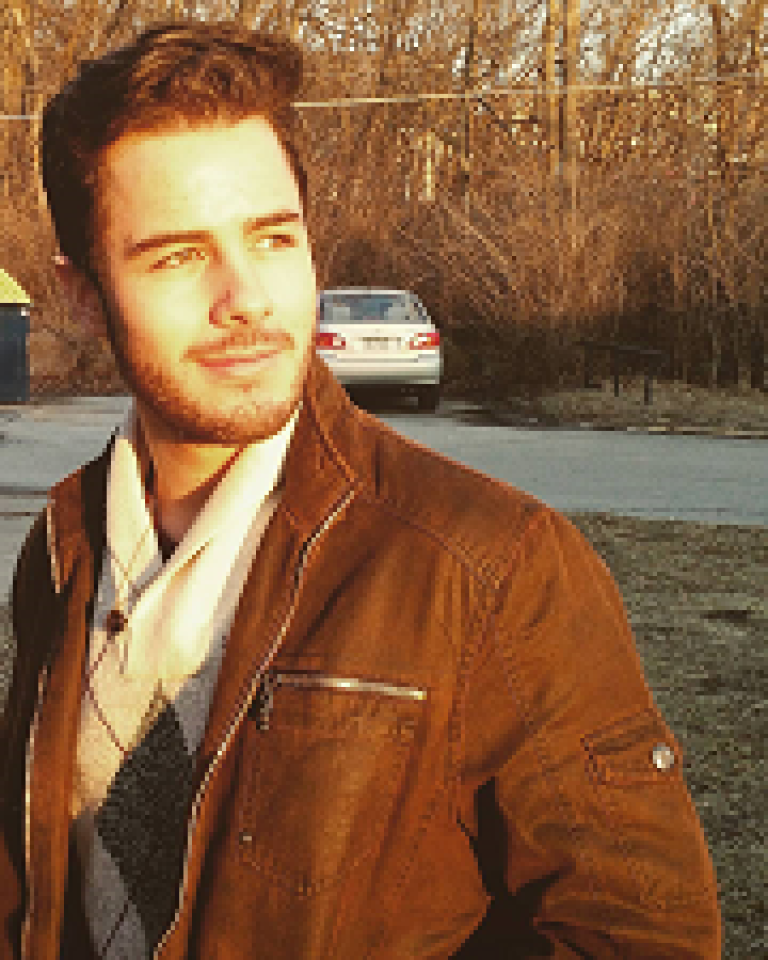Mario Balcázar

STUDENT SPOTLIGHT | FEBRUARY 2016
Department: Physics & Electrical Engineering
Describe your work in a few sentences that we can all understand: Exploration and development of new radar capabilities that jointly leverage recent advances in multi-dimensional signal processing and metamaterial design.
Q: Who mentors your project?
A: Prof. Shannon Blunt & Prof. Alessandro Salandrino
Q: What surprised you about doing research?
A: I strongly believe that working on research is a humbling and character building experience. I was shocked by how little I knew about my fields of study and what they encompass. The amount of future applications of the emerging technologies in our time period go beyond the confines of our imagination. What surprised me the most about doing research was not how many questions we don’t know the answer to, but to realize how many questions we haven’t asked ourselves yet.
Q: What did you find most challenging about getting involved in or doing research? What advice would you offer to students facing similar challenges?
A: The most challenging part was actually not related to research per se. I have been in a constant battle with myself and what I’m really interested in. In order to get involved in research you really need to figure out what you enjoy doing and how your own abilities can be best applied in your field of interest. Performing research is an incredible, but also time consuming, experience. Working in something you enjoy and are truly interested in will allow you to perform at your best and improve both as a researcher and as a person. Be so good they can’t ignore you.
Q: What do you like most about your research?
A: The beauty of the universe has always intrigued me. I love its infinite magnitude, spellbinding mystery, and mathematical poetry. I have worked in Particle and Astroparticle physics research in the past and I’m currently working in the field of electrical engineering. This has provided me with an extraordinary scope for the discovery and understanding of not only the most fundamental building blocks of nature, but also, its applications in the modern world we live in. My goal is to understand every step in the process, from the moment a particle-field vibrates to the moment you turn the switch on and the light reaches your eyes.
Q: What advice would you give to a friend wanting to get involved in research?
A: Just do it. I believe that an unabatable thirst for answers is ingrained in mankind’s DNA. Doing research will not only teach you about your future career but, most importantly, it will teach you about yourself. Performing research is possible in every field of knowledge and there is always new knowledge to be learned, new discoveries to be found. Neither you nor anyone else will likely ever understand the universe fully, but doing research, even if the ultimate goal is unreachable, satisfies our deepest, most human intellectual necessities. Doing research can be so engrossing, nerve-racking, frustrating and even tedious, so much that one can lose touch with the world around him and forget the real importance of the problem he is trying to solve, and yet the inextricable need to satisfy one’s curiosity keeps us going.
Q: How do you spend your time when you’re not working on your research?
A: I have a particular passion for music. I like to listen to it, enjoy it, learn it, compose it, feel it. I play the drums, bass and ukulele; I enjoy all of them and I proudly say that I’m able to appreciate all genres of music. My personal philosophy is that there are two universal languages – music and mathematics. But the first one doesn’t require higher learning in order to appreciate its beauty.